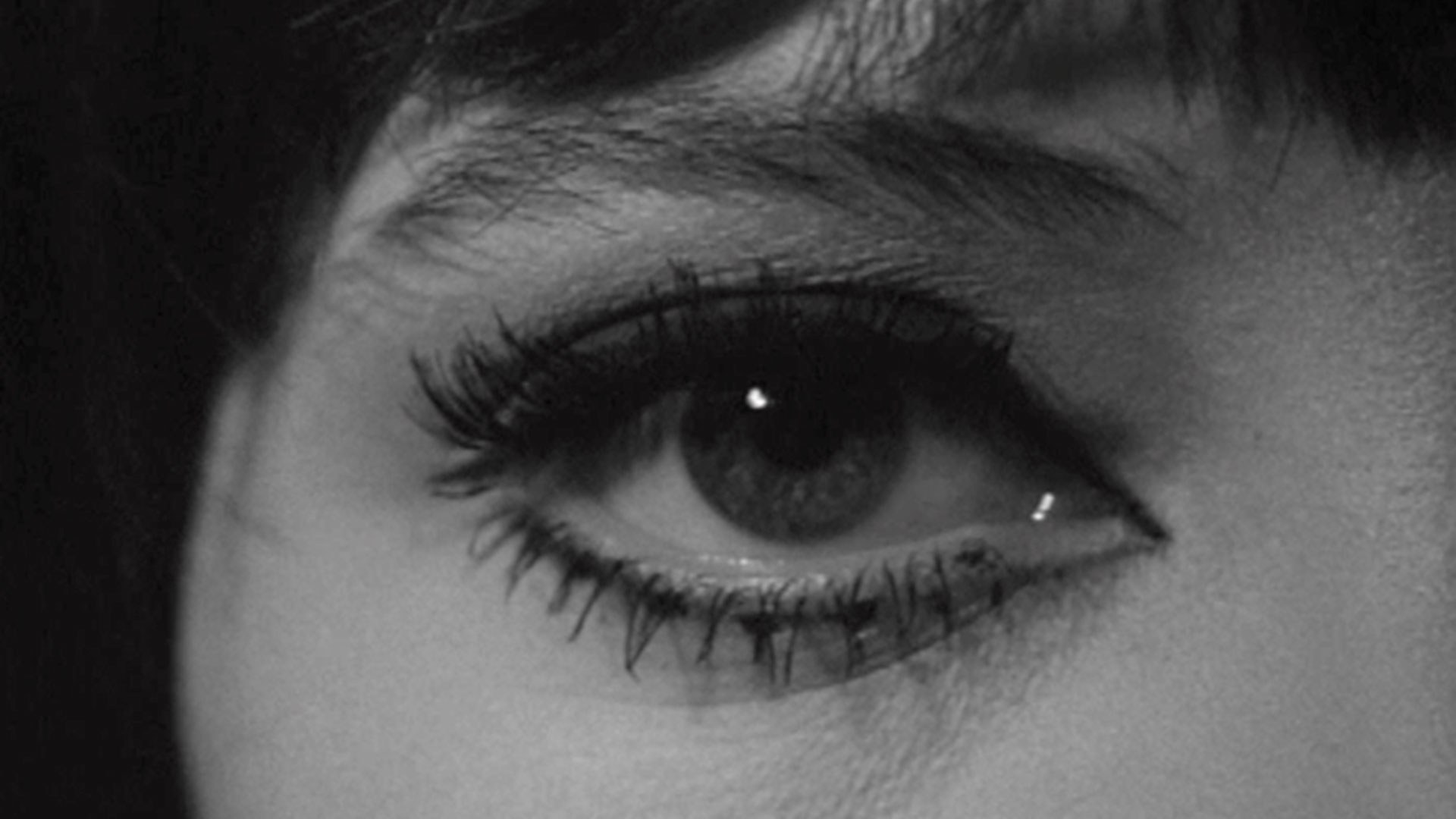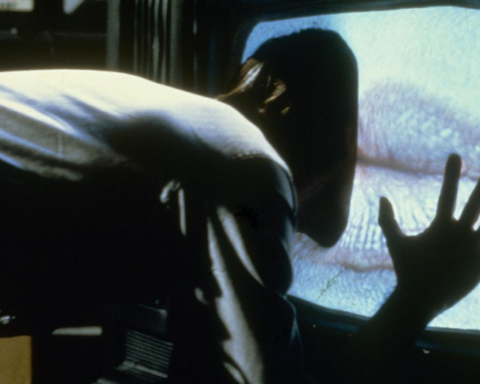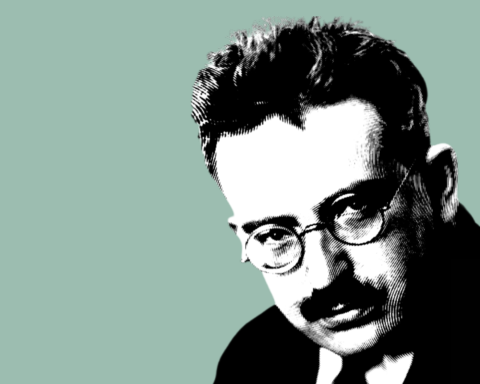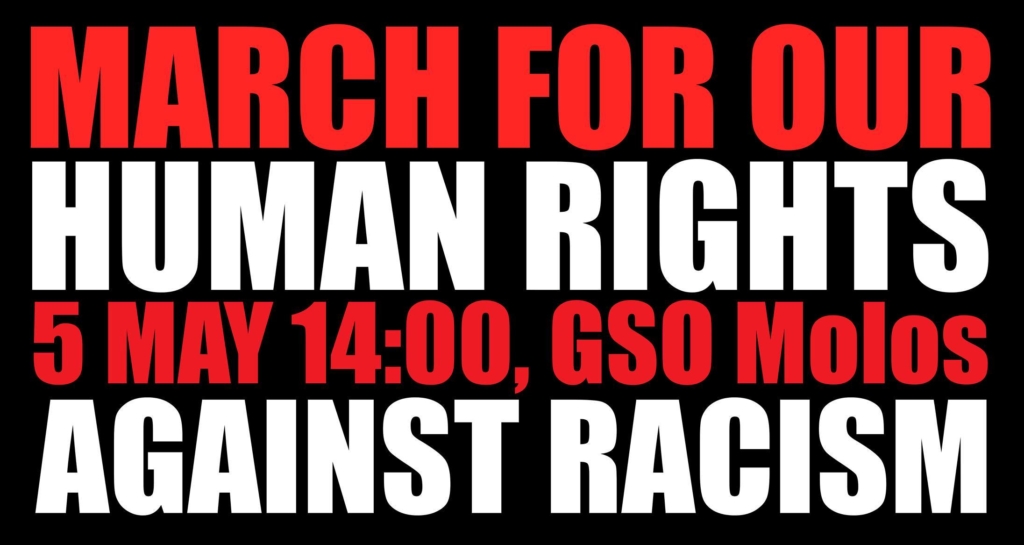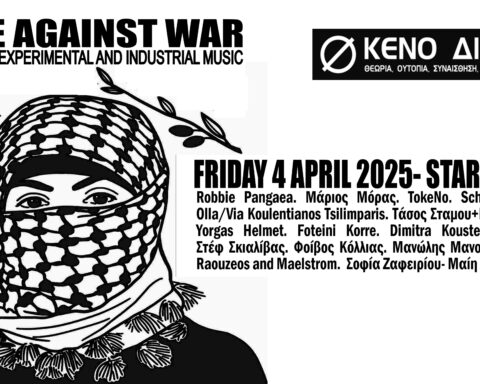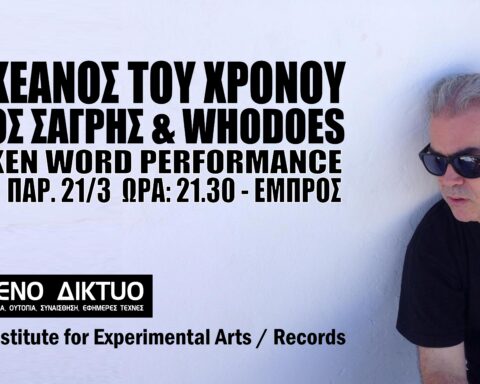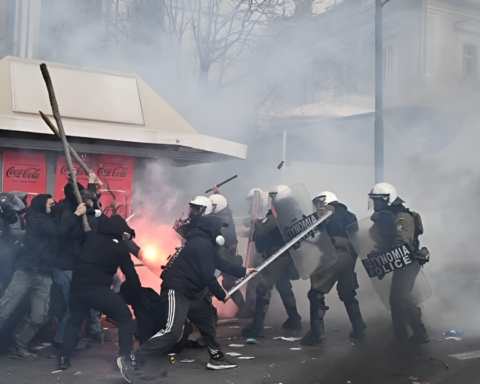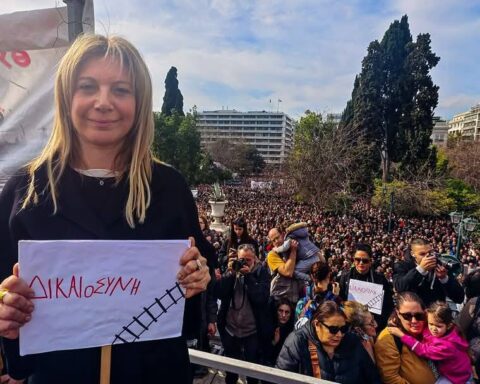In a talk that he gave about religion Derrida has made the following statement,
“We believe we pretend to believe that we share in some pre-understanding. We act as if we have some common sense on what “religion” means in the languages we believe we know how to speak. We believe in the minimum trustworthiness of this word. […] Well nothing is less pre-assured that this factum, and the entire question of religion comes down perhaps in this lack of assurance”.
A similar point can be made about justice. When we talk about justice, we believe that we utter a word that can be translated and understood in different languages. Even more, we can be assured that our utterance will be understood to refer to something whose existence, absence or violation is or should be a matter of great concern. There are cultural and ideological traditions that value freedom over equality, or freedom and equality over authority and hierarchy (or vice versa), and so on. However, it is hard to find social formations and political systems that do not aspire to some form and notion of justice. This can be arguably seen to provide empirical support for John Rawls’ famous thesis in his Theory of Justice that justice is to social systems what truth is to systems of thought, that is, their “primary virtue”.
And yet, to return to Derrida, nothing is less certain than that when the word justice is uttered, we know what is being talked about. As Raymon Geuss has pointed out in Philosophy and Real Politics, “it is striking how unclear this concept is in ordinary language and to what extent conceptions of justice differ from one context to another and in different human societies at different times”. In theoretical terms, this is “the problem of justice”: the existence of a notion that is highly valued across cultures, but whose content and form is open to many contested and conflicting articulations.
Confronted with this quandary, the path usually followed in the relevant theoretical field, the main-stream of theories of justice, is to argue in favor of a specific conception of justice over against other rival ones. This is indeed what Rawls has done: after he posits justice as the primary virtue of social order, he moves on to flesh out its content by identifying justice with fairness. But many other options are available: justice as entitlement, as self-determination, as equal opportunity, as social equality, as meritocracy, to name a few other well-known conceptions. Mindful of the unavoidable element of simplification that generalizations entail, the theoretical discussion on justice can be largely depicted as a continuous debate over the notion that identifies what justice truly is.
In this sense, despite their different and even conflicting assessments, normative definitions operate on the same register: they posit an ideal (justice) which they identify with another ideal (fairness, equality etc.) that effectively defines the form of a just society or more specifically of a just course of action. Thus, theoretical normativism yields a philosophical idealism: an ideality is elevated to a general principle that materiality must adjust in order to acquire its proper or true form. In this way, justice becomes a judgment upon bodies and their affective partiality. In Deleuzian terms, justice “is the judgment of god”.
For all that, the quandary identified earlier does not vanish, it rather intensifies so as to become a true aporia: every normative definition of justice necessarily excludes other available options. And while it aspires to do that on rational, non-partisan grounds, on closer look there is always a political commitment lurking. Justice thus appears to be helplessly enmeshed into the very political antagonisms whose normative framework and proper resolution it theoretically claims to offer.
Now, from the numerous theoretical and philosophical currents existing today, post-structuralism seems to be the least suitable to lift us from this aporia. I most certainly do not claim to offer ‘the post-structuralist theory of justice’. After all, unlike Marxism or even psychoanalysis, there is no single author whose corpus can serve as a unitary point of reference and from which theory may seek support and legitimacy. The difference that poststructuralism has been said to praise defines it also as a current of thought. There are different starting points and theoretical trajectories that speak different languages, even critical to each other. Foucault’s and Derrida’s debate sparked by the History of Madness is well known. Less critically, Deleuze has stated that he admires deconstruction, but it has little to do with his own philosophical project. Yet, the common determination to problematize cherished notions of the western philosophical and political tradition and to think difference in a positive way generates substantial points of encounter. Justice, a true shibboleth of western political philosophy, is one such point.
What I would like to suggest is that the relevant reflections of Derrida, Foucault and Deleuze, three of the most famous poststructuralist thinkers, can be fused to a single stream of thought, which allows us to think the problem of justice in a way that overcomes the impasses of normative-cum-idealist political theory, without adopting the objectivist reductionism or functionalism of traditional materialism neither the flat ontology of new materialisms, which tends to disable a differentiated and differentiating theory of justice.
A spectral promise
I begin with Derrida since it is to him that we owe partly the emergence of a new critical discourse over justice, which re-cognizes the link between justice, power and violence yet tries to sustain the notion’s radical valence and political integrity.
Derrida’s own reflection revolve around one key idea: the irreducibility of justice to law. As he put it programmatically in ‘Force of Law’,
I want to insist at once to reserve the possibility of a justice, indeed of a law that not only exceeds or contradicts law, but also, perhaps, has no relation to law, or maintains such a strange relation to it that it may just as well demand law as exclude it.
In its essentials, the argument is not new. Benjamin, with whom Derrida engages extensively, has unequivocally asserted that there is an “infinite chasm between justice and Right”. To make a huge leap back in time, the non-identity and irreducible tension between justice and law is a key theme in attic Tragedy, which let us not forget had a huge formative impact on the intellectual environment where philosophy grew.
Derrida places himself in this critical tradition and gives it a radical inflection. Justice cannot be contained by law because it resists representation, hence, deconstruction. Τhis strong apophatic standpoint claims not to advance passive resignation or normative relativism (as it has often been accused of). Rather, the impossibility to name justice in a definitive manner, and thus to encapsulate it into a normative/legal order of imputation and representation, creates the possibility of thinking and practicing justice in innovative ways. Indeed, since justice may sometimes exclude or be against law, it can on principle be indexed on social struggles that breach legally sanctioned codes of conduct: wildcat strikes, mutinies, riots, revolts. In this way, justice becomes a category that pertains and allows us to think not (only) ordered procedures but disruptive events.
Yet, real events of insurgency – from which the philosophical concept of the event draws nourishment – never enter Derrida’s purview in a systematic manner. How can indeed the positive presence of justice in social struggles and uprisings be marked, when every claim to presence has been on principle displaced? Not accidentally, Derrida takes a critical distance from the great historical alternative to the legalistic conception of justice that liberalism has promoted, the revolutionary justice preached by the socialist (Marxist, anarchist, communist) tradition. Even more, in his critical commentary of Benjamin, Derrida suggests that ideas of an anomic justice delivered by revolutionary violence are germane with the logic of arbitrary, sovereign rule.
As a way of response, it is worth noting that the link between sovereign Power and revolutionary terror is not forged directly in the moment of popular (resentful and redemptive in equal measure) violence but during its statist mediation. In this respect, a more dialectical analysis of the phenomenon of revolutionary Terror is called for. At any rate, the main issue here is that Derrida entertains the possibility of an alternative to prevailing liberal conceptions of justice, epitomized in the rule of law, but never names it, nor does he systematically reflect on the social forms that have historically embodied it. Even his references to the “new international” are distinctly vague and careful not to give a concrete shape to the militancy that they evoke.
Attributing this standpoint to purely theoretical reasons is to decontextualize thought and obscure its historical mediations. Derrida’s reflections on justice can be plausibly seen as “a theory of defeat”, a notion proposed by Ahlrich Meyer in reference to the work of Marx after the defeat of the 1848 revolutions. That is, Derrida’s late work on justice is expressive of a period when the revolutionary hopes that the “red utopias” have nourished were fading away, after their last upsurge in the 1960s and 1970s. Consequently, the “justice beyond the law” that Derrida conjures lacks a concrete anchoring point.
To be sure, like every genuine thought, Derrida’s is an active reflection on his epoch, one that is bent to resist the liberal triumphalism that we have come to associate with Fukuyama’s infamous “end of history”. Derrida’s thought traces in the ruins of past defeat an indelible residue. Struggles arise and fade, political systems come and go, hopes for a world-historical plebeian redemption have been defeated, the neoliberal utopia that replaced them is swept away by a post-apocalyptic mood; but justice remains. It remains as a promise, a point which allows Derrida to critically broach the messianic potency of justice. But it also remains as a specter that effectively subverts every attempt to offer an ontology of justice. Discerning the “hauntology” that displaces every onto-political configuration of justice is Derrida’s lasting legacy, open to a fertile appropriation: there is an excess that is proper to the idea of justice, which unsettles existing forms of Right by evoking the specter and promise of a justice to come
Yet the fact remains that Derrida’s thought is too steeped into the discursive in order to direct the theorization of justice into a theory of material forms. Nor thus do we ever get a robust analysis of how or why justice emerges in the world. Justice for Derrida dwells essentially on the sphere of ideality; as such, his thought must be seen as a radical idealism set to defer the moment when the necessarily violent application of the ideal of justice comes. There is certainly a critical moment built into this gesture. However, it comes at the expense of a systematic accommodation of the collective praxis that originally displaces the identity between justice and law and raises the problem of justice to the level of political and theoretical consciousness. To attain its fully radical sting and thus become adequate to the violent complexity of the real history of justice, Derrida’s notion of a justice beyond the law needs to be fleshed with the materiality of struggling and desiring bodies.
Power/Justice
Here is where Foucault enters. To be sure, even less so than in Derrida, there is nothing that resembles a “theory of justice” in Foucault’s work. On principle however Foucault’s thought is designed to clarify the way that normative concepts like justice operate and assume their meaning within organized systems of power/knowledge. In brief, from a Foucauldian perspective, justice is not an infinite judgment either of God or of Reason on finitude but a “thing of this world”, whose actuality is always entangled with concrete power relations.
Here we clearly have a perspective that critically embeds normative claims to justice in their material context without reducing them to a fixed metaphysical category, be it “Matter” or “Power”. Given that power is not a univocal substance but a relation generating and unfolding in a complex interface of domination, control and resistance, justice should also not be expected to play a univocal function. Indeed, in the distinction that Foucault draws in Society must be Defended between two types of history, a significant differentiation for justice is also touched upon. In both histories, (whose paradigmatic expressions are respectively Roman and Biblical history) justice holds a key place, but unlike the first “official” history, in the second “anti-history” justice is not found in the lawful constitution of the present, which has fulfilled the past and aspires to mold the future into its own image. It is rather present in its current absence, as a memory of struggle and defeat, as resentful anticipation of a coming vindication, and as a raging battle-cry against the powers that be. In this respect, justice is operative both in rituals of power as well as in events of revolt.
From this inference another crucial insight can be drawn: if justice is indeed not only “what is established”, as Pascal had once asserted, then this is primarily because the historical continuum – discursively established by the narratives of linear progress and triumphant Power – is interrupted by uprisings and struggles that pose a practical challenge to every sanctioned partition of the sensible, i.e. to every nomos, even to the one which claims to rule by virtue of its self-sustaining rationality. This insight gives substance to the notion of a justice “beyond law” by embedding justice to the activity of defiant and insurgent bodies. But what is exactly embedded? Is it an idea, a principle, a virtue, a fantasy? Disappointingly, on the one occasion where he attends to this theme in a reflective manner, during his famous debate with Chomsky, Foucault reverts to a rather conventional functionalism. In his own words:
I would like to reply to you in terms of Spinoza and say that the proletariat doesn’t wage war against the ruling class because it considers such a war to be just. The proletariat makes war with the ruling class because, for the first time on history, it wants to take power. And because it will overthrow the power of the ruling class, it considers such a war to be just.
And then in a more generalizing fashion:
it seems to me that the idea of justice in itself is an idea which in effect has been invented and put to work in different types of societies as an instrument of a certain political and economic power or as a weapon against that power.
Now, I do not deny that justice plays both functions. What I find spurious is the genealogical reduction that allows for a definitional identity: “justice is a device”. For such a verdict ignores that power is not the end of which justice serves as a supporting means. This can be seen in the idea of workers-power, which intensifies the link that Foucault makes between proletarian struggles and power to the level of a political principle. Workers-power names sociopolitical forms – from the dictatorship of the proletariat to autonomia operaia (workers autonomy) – that enable the laboring masses to change and improve their lives. In every case, the change is experienced to provide justice with its content, while conversely justice concerns precisely these conditions – from a higher wage to self-administration – that enable a better life for the workers.
Rather therefore than a crude functionalism a more intricate relation is suggested, a fusion of justice and power in processes of biopolitical production. For justice specifically, a non-derivative potency is implied, of justice as a mobilizing force in the struggles of those who in the context of existing dispositifs of power/right are subject to multiple forms of disenfranchisement. Interestingly, in his later article on revolt Foucault hints towards this direction. For if at the heart of the irreducible event of revolt an experience of injustice is involved, does not the latter experience imply a more positive desire for justice?
Becoming-justice
The real question of course here concerns the exact relation between affective experiences of injustice and the alleged desire for justice. Foucault himself did not pursue this issue. One reason may be that, despite his positive review of Anti-Oedipus, he continued associating desire with lack (at least this is what he confined to Deleuze).
It is not that difficult to comprehend why Foucault insisted on the identification of desire and lack. Don’t we desire what we don’t have? Money, time, bodies, pleasures, power? More substantially, the link suggests itself because both phenomena act as vectors between two points: “desire for…”, and “lack of …”. In both cases, a space is denoted that needs to be covered. For the case of justice specifically, the link is further fortified by the fact that the desire for justice denotes a chasm between an Ought and an Is, which as Hegel has perceptively commented leads people to react against the existing order of things. However, there is a crucial difference: lack designates a void, a constitutive absence; hence it is essentially a category of negativity. Desire, on the other hand, designates a positive magnitude and quality, that is, a movement and an interplay of bodies that always and already fills the space between them. It is this this key idea that Deleuze and Guattari develop by elaborating on the productivity of desire. For to say that desire is a “factory of production” is effectively to conceptualize the way that desire produces the trajectories, connections and assemblages which actualize it.
In terms of a theory of justice this opens an extremely fertile path, signposted by Deleuze and Guattari (although not systematically pursued). The desire for justice is much more than the search of an absent ideal, which will finally give to those who find it what they rightfully deserve. It is a productive trajectory that co-extends to the forms that actualize it: to unions, associations, communes, NGO’s, courts, militias. All these forms are invested by a desire to set things right, that is by a desire for justice. And since there is no “desiring production” which is not at the same time “social production”, the desire for justice ultimately unfolds as a biopolitical process. “We have our being in justice” (Becket).
This perspective yields nothing less than an open and expansive topography of justice: as an immanent determination of social/desiring production the actuality of justice is not reduced to law-making. Rather, as Deleuze and Guattari argue in their Kafka book, justice spreads throughout social being, wherever things are taking place: “in the hallways of the congress, behind the scenes of the meeting, where people confront the real, immanent, problems of desire and power, the real problem of justice”. Moreover, as they continue, since everyone is involved into the problems of desire and power, everyone is also an “auxiliary of justice”. In this respect, as they conclude, “justice is the continuum of desire, with shifting boundaries that are always displaced”.
This perspective gives to justice a rhizomatic and dynamic potency. What all the singular instantiations have in common is that justice in order “to be” must “become”. Actualizing justice is a becoming-justice. The notion is not a metaphor. Far from it, the Deleuzian notion of becoming is important precisely because it grasps that justice does not concern the self-realization of a primary identity, not even a dialectical one of the “in-itself” to “for-itself” type. It concerns the production of difference through a combination of heterogeneous elements. Resisting austerity, revolting against a dictator, establishing a temporary occupation or a permanent commune, fighting for a better wage, initiating a jihad, joining a crusade. In all these cases, a differential passage is involved, becoming something other than what you are supposed to be, creating new connections, entering into new assemblages: becoming other, becoming-many, becoming-justice.
Of course, this process may stabilize so as to form a field of interiority with new allocated roles and identities. This is the moment when justice is captured by the state and the thought peculiar to it, “state-thought”. However, such a capture remains always incomplete, negotiable, fragile. The history of justice in this respect may be legitimately seen as the contentious and intensive interplay between stratification and deterritorialization, the composition of majorities and the formation of minorities, transcendent judgement and immanent critique. From this perspective also, the idea of justice, i.e. the noetic actualization of justice as a conceptual/ideational generality, can be seen to serve a double function: it operates both as an “order-word”, that prescribes to the present its proper form, and a “pass-word”, which evokes an earth and a people that “do not yet exist”.
Interestingly, in this context justice operates as a necessary mediation that prevents the dualities which frame Deleuze’s philosophy to break down into an onto-political dualism. At the same time, the reduction to a crude, reductionist monism is also avoided. Instead, the theorization of justice invites an analysis of different diagrammatic lines: one “hierarchical-stratified”, the other “horizontal-egalitarian”. In Deleuze’s and Guattari’s terms: “another justice, another movement, another space-time” (A Thousand Plateaus).
Two further crucial insight follow: no single normative definition of justice is possible since the becoming of justice involves as its intrinsic moment the decoding and disordering of existing forms. This means that riots, revolt, and other forms of popular insurgency, up to and including revolution, are not symptoms of dysfunction but positive forms of becoming-justice. Finally, insofar justice is (a) becoming it belongs to history but also it constitutes one of its points of excess, since every actualization of justice is shadowed by non-derivative potentials which stand as its virtual alternatives.
Clearly, there is much more that needs to be said to substantiate the theorical perspective proposed. My goal here however was not to offer an exhaustive theory. It was to show how poststructuralist thought offers tools and a space for thinking justice afresh. In this context, I have articulated a series of suggestive points which are meant to ground a key programmatic insight: a theory of justice should be a critical analysis of differential forms ordering, regulating, subverting, transforming, and haunting our world. Thus, instead of prescribing to the world its one true form, to think justice is to open ourselves to the world’s potential figures. As a French graffito (recently restated during the “gillets jaunes” mobilizations) astutely puts it: “other ends of the world are possible”.
George Sotiropoulos / Void Network
George Sotiropoulos holds a PhD in Political Theory. He is a member of Void Network. Recently he published the book A Materialist Theory of Justice: The One, the Many, the Not-Yet (published by Rowman and Littlefield International)
